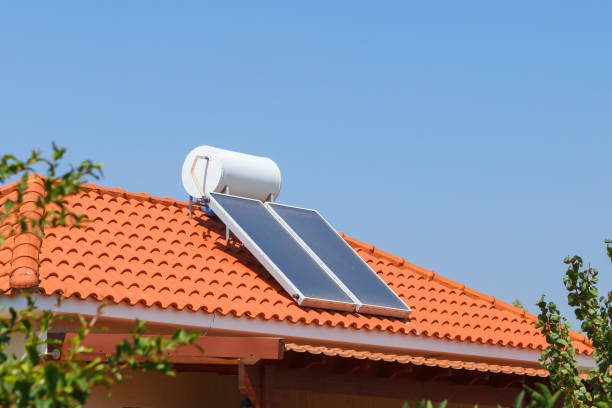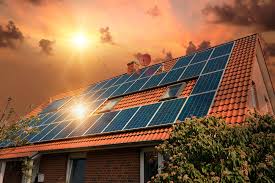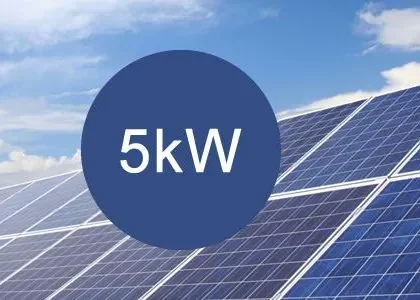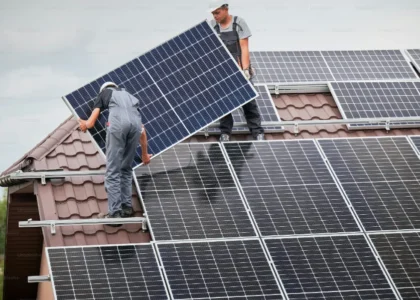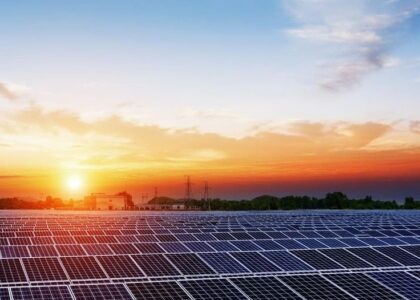If you are planning to switch to solar energy, you might be asking yourself: Should I install a solar water heater or rooftop solar panels? Both options use sunlight but in very different ways. One is limited to heating water, while the other powers your entire home. Let’s break it down so you can make the right choice.
What is a Solar Water Heater?
A solar water heater is a solar thermal device. It uses sunlight to directly heat water stored in insulated tanks. This hot water can then be used for bathing, cooking, or cleaning. Depending on the design, these systems may be:
- Flat-plate collector heaters
- Evacuated tube heaters
- Batch collectors
Some use pumps to circulate water (active systems), while others rely on natural circulation (passive systems). While they do a good job at providing hot water, they cannot generate electricity.
What are Rooftop Solar Panels?
Rooftop solar panels, or photovoltaic (PV) systems, work on an entirely different principle. Instead of using sunlight to create heat, they convert solar radiation into electricity. That electricity can then be used to run every appliance in your home—from geysers and washing machines to ACs, TVs, lights, and refrigerators.
There are three types of rooftop solar systems:
- On-grid solar systems – Connected to the power grid; excess energy is exported, and you can import power at night.
- Off-grid solar systems – Paired with batteries, designed for locations without reliable grid supply.
- Hybrid solar systems – A mix of both, but more expensive.
Among these, on-grid solar systems are the most popular because they are cost-effective, subsidy-eligible, and provide excellent returns.
Solar Water Heater vs Solar Panels: The Big Difference
While both technologies use the sun, their functionality is very different.
- A solar water heater can only supply hot water.
- A solar panel system can provide hot water and electricity for the entire household.
This makes solar panels a far more versatile and valuable investment for homeowners.
Benefits of Rooftop Solar Panels Over Solar Water Heaters
1. Electricity + Hot Water Together
Solar panels can run a geyser to provide hot water, while also powering all your other appliances. Water heaters, in comparison, are limited to a single use.
2. Massive Savings
A rooftop solar system can reduce electricity bills by up to 90%. For example, a 4 kW on-grid system in India costs around ₹1.5–1.9 lakh after subsidy and can save ₹20+ lakh in 25 years. Solar water heaters simply don’t offer that kind of return.
3. Government Subsidy
Under the PM Surya Ghar Muft Bijli Yojana, homeowners installing made-in-India solar panels can claim a subsidy of up to ₹78,000. Unfortunately, solar water heaters are not eligible for subsidies.
4. Longer Lifespan
Solar PV panels last for 25 years or more, whereas solar water heaters typically need replacement within 15–20 years.
5. Environmental Benefits
Installing even a 3 kW rooftop solar system is like planting 118 full-grown trees. Over 25 years, it offsets more than 77,000 kg of CO₂ emissions, helping fight air pollution in cities.
Limitations of Solar Water Heaters
While solar water heaters are cheaper initially, they come with limitations:
- Restricted use – Only provide hot water, nothing else.
- Dependence on weather – On cloudy or cold days, they often need electric or gas backup, which increases costs.
- Not suitable for all locations – Shady rooftops or extremely cold climates reduce efficiency.
- Heat loss – Storage tanks lose heat if insulation is poor.
This means that even after investing in a solar water heater, you’ll still need to pay high electricity bills for the rest of your appliances.
Solar Water Heater vs Solar Panels: Quick Comparison
| Feature | Solar Water Heater | Rooftop Solar Panels |
|---|---|---|
| Main Function | Hot water only | Powers entire household (plus hot water via geyser) |
| Technology | Greenhouse effect (heat-based) | Photovoltaic effect (light-based) |
| Electricity Generation | ❌ No | ✅ Yes |
| Bill Savings | Limited | Up to 90% |
| Government Subsidy | No | Yes (up to ₹78,000) |
| Lifespan | 15–20 years | 30+ years |
| ROI | Low | Very high |
Why Rooftop Solar Panels Are the Better Choice
If your goal is long-term savings, energy independence, and a greener lifestyle, rooftop solar panels are the clear winner. They:
- Power all household appliances.
- Cut electricity bills drastically.
- Last for decades with minimal maintenance.
- Attract government subsidies.
- Reduce your carbon footprint.
In contrast, a solar water heater is helpful but limited. It lowers your geyser costs but doesn’t tackle your home’s overall power consumption.
Final Verdict: Solar Panels Win
So, solar water heater vs solar panels— which should you choose?
If you only want hot water, a solar water heater will do the job. But if you want to power your home, cut bills by 90%, and make a smart investment that pays for itself many times over, rooftop solar panels are the way forward.
With government subsidies still available in 2025, now is the best time to go solar. Not only will you save lakhs over the system’s 25-year life, but you’ll also contribute to a cleaner and more sustainable future.


